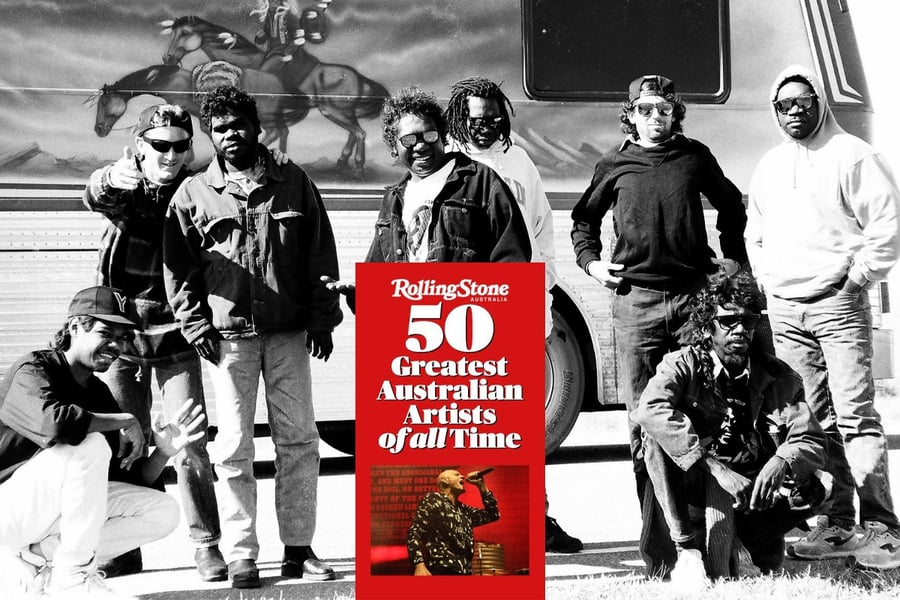In December of 2020, Rolling Stone Australia released a special edition issue which looks at the 50 Greatest Australian Artists of All Time, paying tribute to the best and most impactful artists in Australian music history. While it would have been easy for the editors and writers of the publication to profess their love of the listed artists, the decision was instead made for those who found themselves inspired by these world-renowned names to share their own testimonials of why these artists deserve to make the list.
In celebration of the issue’s release in December, we’re counting down the full 50 artists and their accompanying testimonials in this ongoing online feature. If you want to get your hands on an physical copy of the magazine, be sure to subscribe now to experience the double-length edition featuring some of Australia’s best and brightest discussing the finest names in local music.
50 Greatest Australian Artists of All Time – #38: Yothu Yindi (by Peter Garrett of Midnight Oil)
Back in the day whilst travelling in the Top End, I met a young Indigenous trainee teacher on the northeast coast of Arnhem Land. It’s a place of coastal mangroves and paperbark forests where the Yolngu people have lived for eons.
With an acoustic guitar at his side that person, now known as Dr M Yunupingu, told me he wanted to form a band that would take Yolngu culture far and wide. Not long after, Yothu Yindi (loose translation, “child and mother”) emerged.
Including the now-famous Gurumul Yunupingu on keyboards and guitar, Witiyana Marika dancing and playing traditional clapsticks, alongside white fellas Stu Kellaway and Cal Williams, Yothu Yindi were distinct and different, fusing modern pop/rock with traditional music and language, underpinned by a philosophy called ‘both ways’.
‘Both ways’ envisioned black and white working together, respecting each other’s cultures and forging a united, fairer nation. In time Yothu Yindi took this perspective across Australia and later the world – a singular achievement.
Their best-known song “Treaty”, released early in their career, is a good example.
Love Music?
Get your daily dose of everything happening in Australian/New Zealand music and globally.
Incensed by the broken promise of then Prime Minister Bob Hawke for a treaty between Australia and Aboriginal people, “Treaty” demanded a document of reckoning to expunge the stain on Australia’s conscience due to the theft of First Nations’ land by British colonists. Paul Kelly and l helped in the writing, Mark Moffat produced – a ‘both ways’ moment.
“We used to hang side stage watching the band in full flight.”
The first version went nowhere. But a dance remix by Filthy Lucre saw it became a radio hit as listeners across the country heard – many for the first time – the Aboriginal language Gumatj, in a song directly addressing one of the most crucial issues of our time. Regrettably one still not resolved.
During the Nineties, Midnight Oil toured with Yothu Yindi in the US where nobody had ever seen anything quite like them.
We used to hang side stage watching the band in full flight, with dancers and backing singers painted in traditional markings exhorting the crowd to rise up and listen. The didge throbbing like the heartbeat of the continent, the music rolling off the stage like the tide, carrying the words to places unknown.
They made six albums, with Tribal Voice my favourite, and played all over including at the closing of the Sydney 2000 Olympics. Since the tragic early death of Dr M Yunupingu in 2013, they have ploughed on as Yothu Yindi and The Treaty Project. Yirrmal Marika, Dr Y’s grandson, joined us at the Domain in Sydney for a version of “Treaty” to close off The Great Circle tour in 2018. Thirty years later still performing, still getting the message out – some band.



































